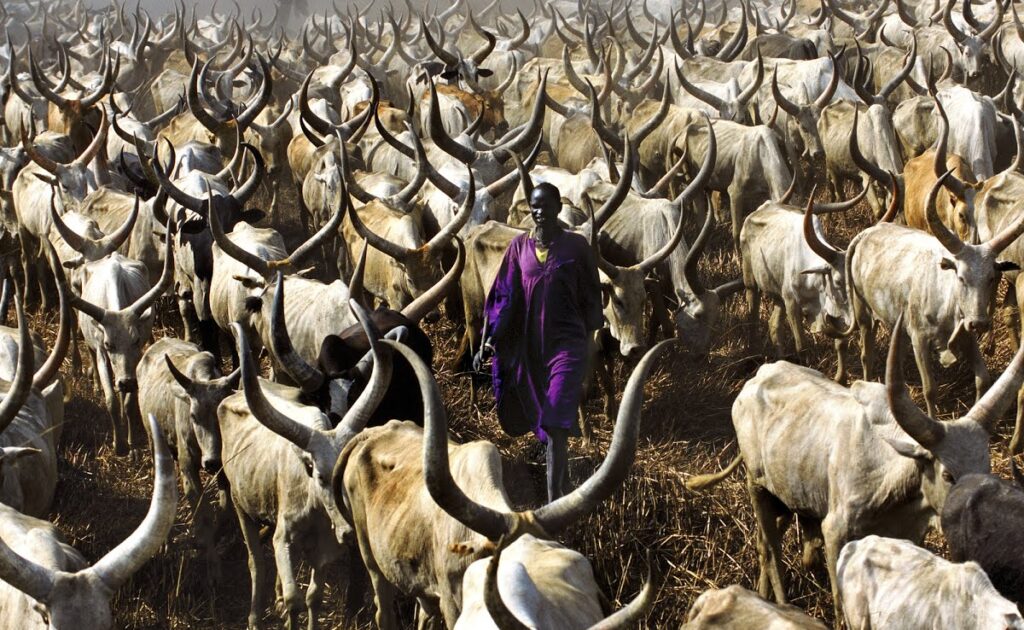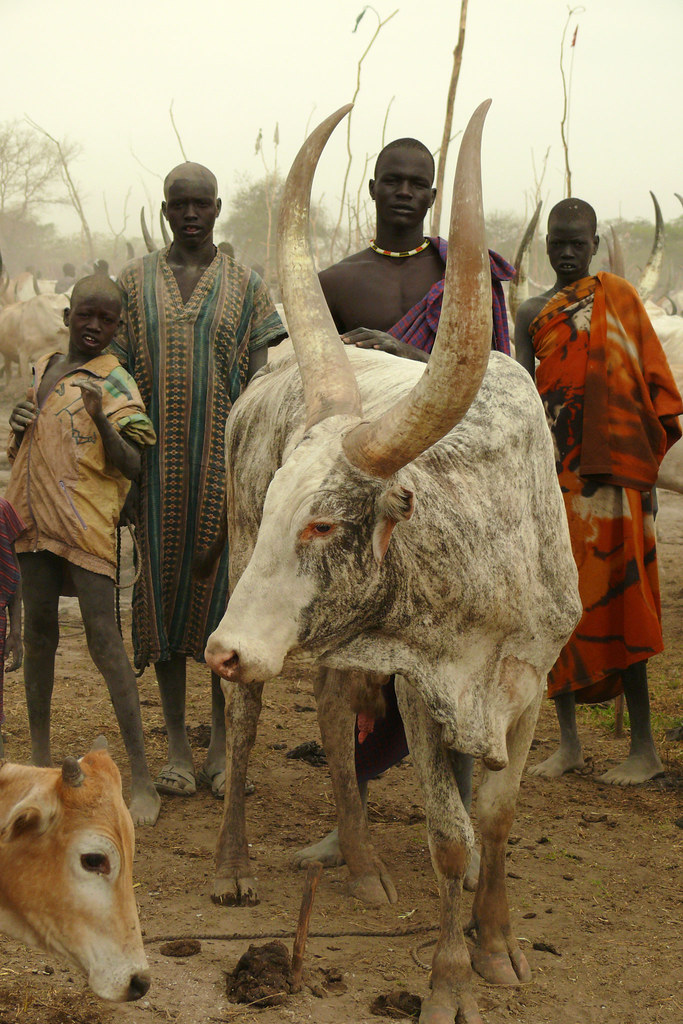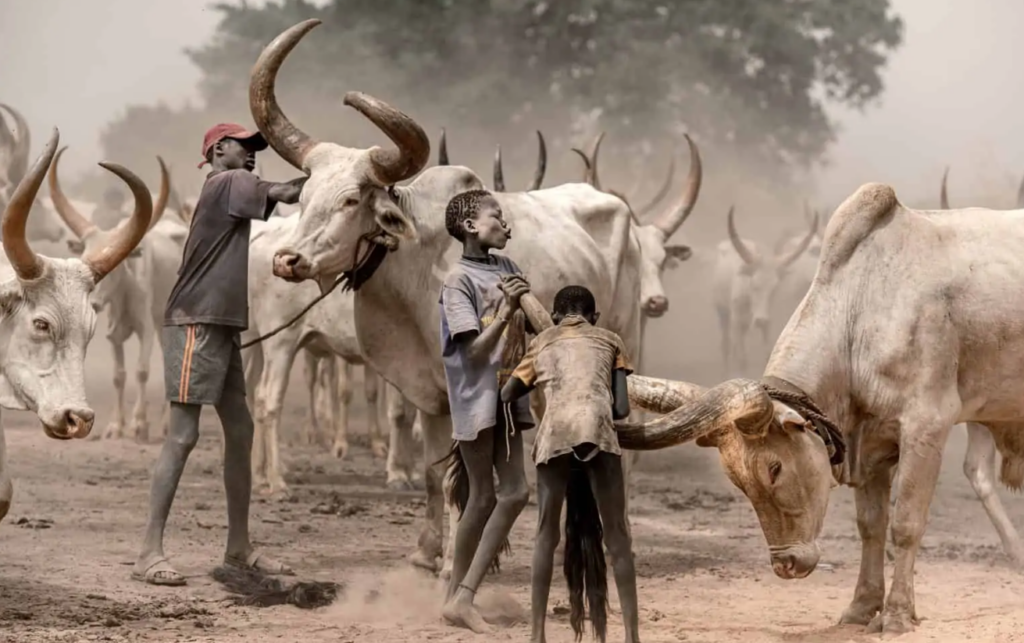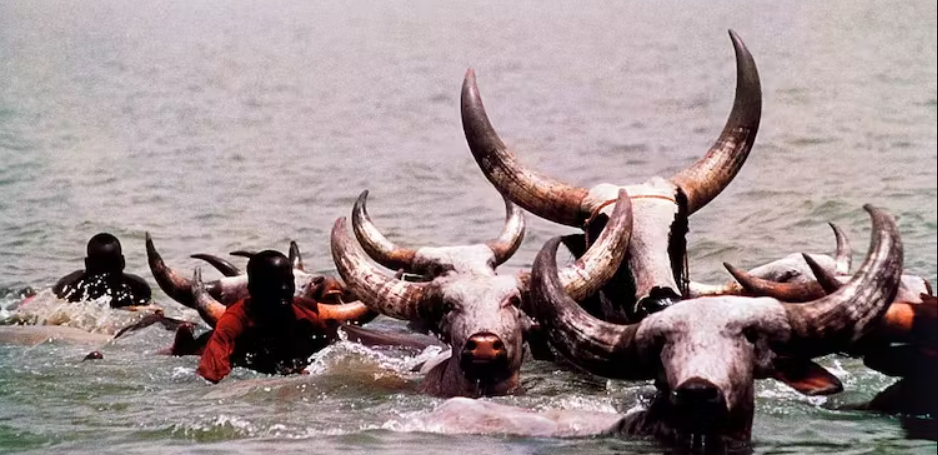
In the vast plains of South Sudan, the Dinka people have forged a deep and enduring connection with their cattle, an integral part of their cultural identity. The Dinka cattle cult, often referred to as “Cieng” or “Bor,” is a tradition that revolves around the revered livestock of this pastoral community. This article delves into the profound significance of cattle in Dinka culture, exploring their roles in everyday life, rituals, and the spiritual beliefs that bind the Dinka people together.

One of the most prominent aspects of the Dinka cattle cult is the practice of cattle raids, where neighboring communities may engage in organized raids to acquire cattle. These raids are not simply acts of theft but are deeply rooted in Dinka tradition, often carrying an element of competition and honor. The successful raiders gain not only cattle but also prestige and recognition within their community.
Cattle are at the heart of Dinka society, serving as a source of wealth, sustenance, and prestige. The number of cattle a Dinka family possesses is a reflection of their social status and prosperity. In Dinka culture, cattle are not merely a commodity; they are seen as a symbol of life itself. Cattle provide milk, meat, hides for clothing, and even serve as a form of currency in trade and exchanges. The Dinka’s deep reliance on their herds shows their deep bonds with their livestock.
The spiritual connection between the Dinka people and their cattle is equally profound. Cattle are believed to be the intermediary between the living and the spirits of the ancestors. During rituals and ceremonies, cattle are sacrificed to seek the blessings and protection of the ancestors. The act of naming a newborn Dinka child is often tied to the family’s cattle, strengthening the bond between the child and the family’s herd. The Dinka cattle cult is a testament to the enduring significance of tradition in the face of modern challenges, as it continues to play a central role in the lives of the Dinka people, connecting them to their cultural heritage and spiritual beliefs.



